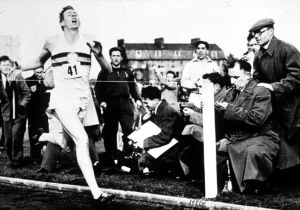 Olivier Messiaen’s Quartet for the End of Time has gotten easier to play. Fifteen years ago, I learned the piece and performed it, finding the music quite difficult. There were rhythmic complexities, and ensemble challenges. Especially in the first movement (“Liturgie de cristal”), andin the sixth movement (“Danse de la fureur, pour les sept trompettes”), it was difficult just to stay together with the other players.
Olivier Messiaen’s Quartet for the End of Time has gotten easier to play. Fifteen years ago, I learned the piece and performed it, finding the music quite difficult. There were rhythmic complexities, and ensemble challenges. Especially in the first movement (“Liturgie de cristal”), andin the sixth movement (“Danse de la fureur, pour les sept trompettes”), it was difficult just to stay together with the other players.
Around the world last season, there were many performances of Messiaen’s music, marking the one-hundredth anniversary of the composer’s birth in 1908. I performed the quartet five times in a variety of venues (large concert hall to night club) with a changing cast of violinists, cellists, and clarinetists. (The piece is written for clarinet, violin, cello, and piano.)
My first re-encounter with playing Messiaen’s quartet involved two performances at a Midwestern summer festival, with an ensemble of relatively young players. Everything went together rather easily, causing me to wonder: Have the difficult rhythms of Messiaen’s music become “easier”? Are players today just better able to cope with irregular beat patterns?
As for me, although it’s true I had not played this music for many years, I had coached several student performances of the piece. At Juilliard and at Leipzig’s Hochschule für Musik, I worked on these complexities with young musicians, developing some strategies — and greater familiarity with the music. In the coachings, I noticed that the hurdles in Messiaen’s music seemed less overwhelming to younger players.
In sports, we witness each generation of athletes becoming more technically accomplished. Such a significant achievement as Roger Bannister’s “four-minute mile” eventually became something a whole group of elite runners could attain.
The pianist and composer Ferruccio Busoni used the expression “pianistic Darwinism.” He was describing how a dauntingly challenging piece of music, even a piece considered to be “unplayable,” eventually becomes accessible to many players. Busoni’s example was Beethoven’s “Hammerklavier” sonata, but we might think of Maurice Ravel’s Gaspard de la nuit, or even The Rite of Spring.
This “Darwinism” is manifested in many of the auditions I hear each spring at New England Conservatory. (Busoni taught at New England Conservatory in the 1890s.) One exceptional pianist brilliantly played Liszt’s etude “Feux follets” for our audition committee. After the applicant left the room, my colleague Patricia Zander leaned over and whispered in my ear: “You know, that piece used to be difficult.”

is this relevant?
I recently came across your blog and have been reading along. I thought I would leave my first comment. I don’t know what to say except that I have enjoyed reading. Nice blog. I will keep visiting this blog very often.
Barbara
http://keyboardpiano.net
.., this has gotten my interest… i am really hoping if i could read more post… i love anything about the piano…
Thanks for the added knowledge through this site.. hope I can read more topic about piano.. i want to know more..